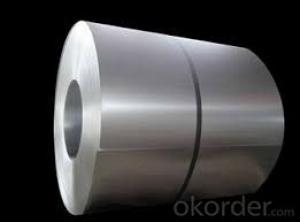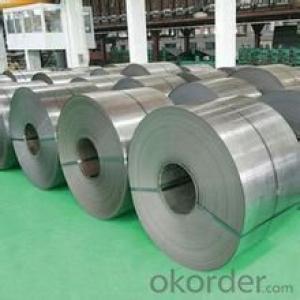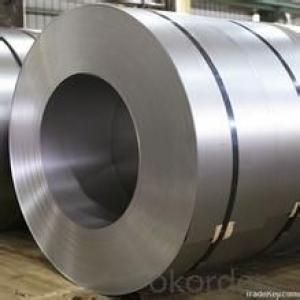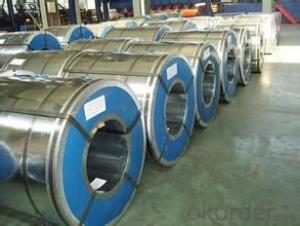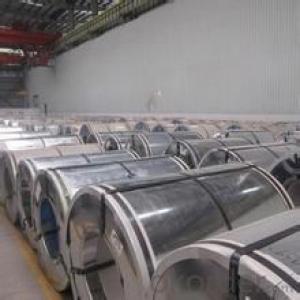cold rolled steel coil / sheet / plate -SPCG in CNBM
- Loading Port:
- Tianjin
- Payment Terms:
- TT OR LC
- Min Order Qty:
- 100 m.t.
- Supply Capability:
- 5000000 m.t./month
OKorder Service Pledge
OKorder Financial Service
You Might Also Like
Description:
The raw material of cold rolled steel coil/sheet is high quality hot rolled product, and after pickling, kinds of new technology and new process of global cold rolling production have been applied. Therefore the manufacturing, home appliance, automobile etc.
Specification:
COLD ROLLED STEEL | |
Thicknenss | 0.10mm-4.00mm |
Width | 600mm-2000mm |
Sheets length | 1200-6000mm |
Coil inner diameter | 508-610mm |
Surface treatement | matt finish/bright finish,oiling/dry, bright anneal/black anneal |
Coil weight | 3-5t |
Application:
1. Refrigerators, cabinets, power distribution baords and drums.
2. Automobile floor and roof panels.
3. Automobile fenders and quarter panels
4. Automobile fenders and quarter panels
Images:
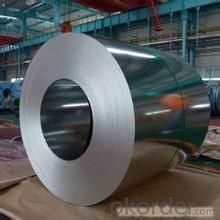
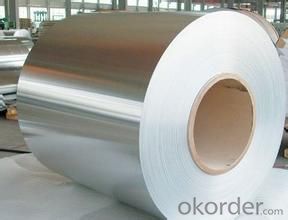
Our products enjoy an excellent reputation and have been exported to Europe, South-America, the Middle-East, Southeast-Asia, Africa and Russia etc.. We sincerely hope to establish good and long-term business relationship with your esteemed company.
FAQ
1. Do you have QC team?
Yeah, sure, our QC team is very important, they will keep the quality control for our products.for quality inspection every day.
- Q:What are the different types of steel coil finishing tools?
- There are several types of steel coil finishing tools, including slitters, shears, levelers, and recoilers. These tools are used to cut, flatten, and rewind steel coils to achieve the desired shape and surface finish.
- Q:bullets are normally made out of lead...are there bullets that are completely steel?? (not plated)
- Yes, mild steel has been used, especially in wartime when shortages of materials become problematic. The trouble with using them, though, is that they don't obturate the rifling well (plus the obvious thing that they're hard) so they tend not to shoot well, and they wear barrels quickly.
- Q:How are steel coils used in the production of industrial storage tanks?
- Steel coils are commonly used in the production of industrial storage tanks as they provide the necessary strength and durability. The coils are processed and formed into tank shells, which are then welded together to create the tank structure. This ensures that the tank is capable of withstanding the pressure and weight of the stored materials.
- Q:What is the average cost of shipping steel coils?
- The average cost of shipping steel coils can vary depending on various factors such as the distance, weight, dimensions, and shipping method. It would be best to contact shipping companies or freight forwarders for accurate and up-to-date pricing information.
- Q:What are the common size limitations for steel coil production?
- The common size limitations for steel coil production can vary depending on several factors such as the type of steel being used, the manufacturing process, and the equipment available. However, there are some general size limitations that are commonly observed in the industry. One of the primary constraints is the width of the steel coil. The width of the coil is typically limited by the size of the rolling mill or the slitting equipment used for production. Standard widths for steel coil production range from around 600 millimeters (23.6 inches) to 2,000 millimeters (78.7 inches). However, widths outside of this range can also be achieved through specialized equipment and processes. Another limitation is the thickness of the steel coil. This can be influenced by the type of steel, the intended application, and the manufacturing capabilities. Common thicknesses for steel coils range from 0.15 millimeters (0.006 inches) to 6 millimeters (0.236 inches). Thicker or thinner coils can be produced, but they may require specialized equipment and processes. The weight of the steel coil is another important consideration. The maximum weight of a steel coil is typically determined by the capacity of the production and handling equipment, as well as transportation limitations. Standard coil weights range from a few hundred kilograms to several tons. However, it is possible to produce coils that exceed these limits by using larger equipment or dividing the coil into multiple smaller coils. In addition to width, thickness, and weight, there may also be limitations on the length of the steel coil. This can be influenced by factors such as the size of the production line, the handling and transportation capabilities, and customer requirements. Standard coil lengths typically range from a few meters to several tens of meters. However, longer coils can also be produced by using specialized equipment and processes. It is important to note that these size limitations are not fixed and can vary depending on the specific requirements of a project or customer. Manufacturers often work closely with customers to determine the optimal size limitations for their steel coil production, ensuring that the final product meets the desired specifications.
- Q:what is the difference between metal and steel
- well, steel is a type of metal. It's sort of like asking the difference between a bug and an ant, an ant is a bug, but not every bug is an ant. Likewise, steel is metal, but not all metal is steel. Gold is metal, Silver is metal, Iron is metal, Steel is metal.
- Q:What are the commonly used molds steel?
- I think cylinder heads.
- Q:Are steel coils affected by temperature changes?
- Yes, steel coils can be affected by temperature changes. Steel is a metal that expands when heated and contracts when cooled. This expansion and contraction can lead to changes in the dimensions and shape of steel coils. Additionally, extreme temperature variations can cause thermal stress, which may result in warping, cracking, or weakening of the steel coils. Therefore, temperature changes can have an impact on the performance and integrity of steel coils.
- Q:What is the typical weight of a steel coil?
- The typical weight of a steel coil can vary depending on its size and thickness. However, on average, steel coils can weigh anywhere from a few thousand pounds to over 50,000 pounds.
- Q:What are the different coil winding methods used for steel coils?
- The different coil winding methods used for steel coils include cross-winding, helical winding, and layer winding. Cross-winding involves winding the steel coil in a crisscross pattern to ensure even distribution of the material. Helical winding involves winding the steel coil in a spiral pattern, which provides strength and stability to the coil. Layer winding involves winding the steel coil in layers, with each layer placed on top of the previous one, ensuring efficient use of space and easy unwinding of the coil.
1. Manufacturer Overview |
|
|---|---|
| Location | |
| Year Established | |
| Annual Output Value | |
| Main Markets | |
| Company Certifications | |
2. Manufacturer Certificates |
|
|---|---|
| a) Certification Name | |
| Range | |
| Reference | |
| Validity Period | |
3. Manufacturer Capability |
|
|---|---|
| a)Trade Capacity | |
| Nearest Port | |
| Export Percentage | |
| No.of Employees in Trade Department | |
| Language Spoken: | |
| b)Factory Information | |
| Factory Size: | |
| No. of Production Lines | |
| Contract Manufacturing | |
| Product Price Range | |
Send your message to us
cold rolled steel coil / sheet / plate -SPCG in CNBM
- Loading Port:
- Tianjin
- Payment Terms:
- TT OR LC
- Min Order Qty:
- 100 m.t.
- Supply Capability:
- 5000000 m.t./month
OKorder Service Pledge
OKorder Financial Service
Similar products
New products
Hot products
Related keywords
